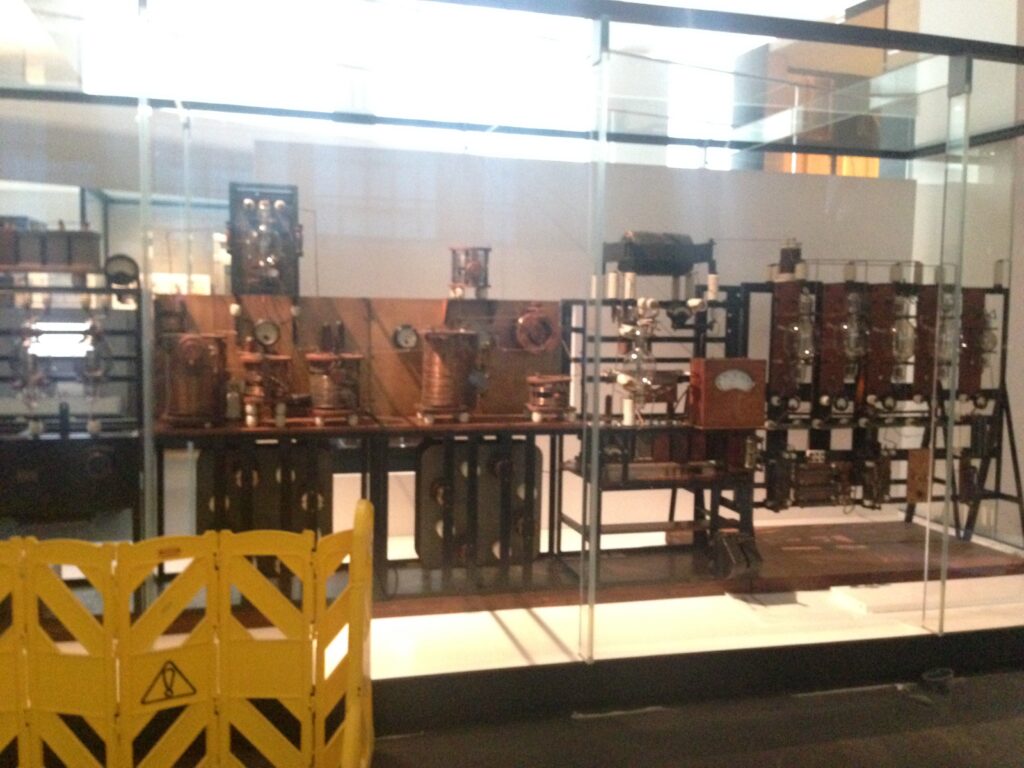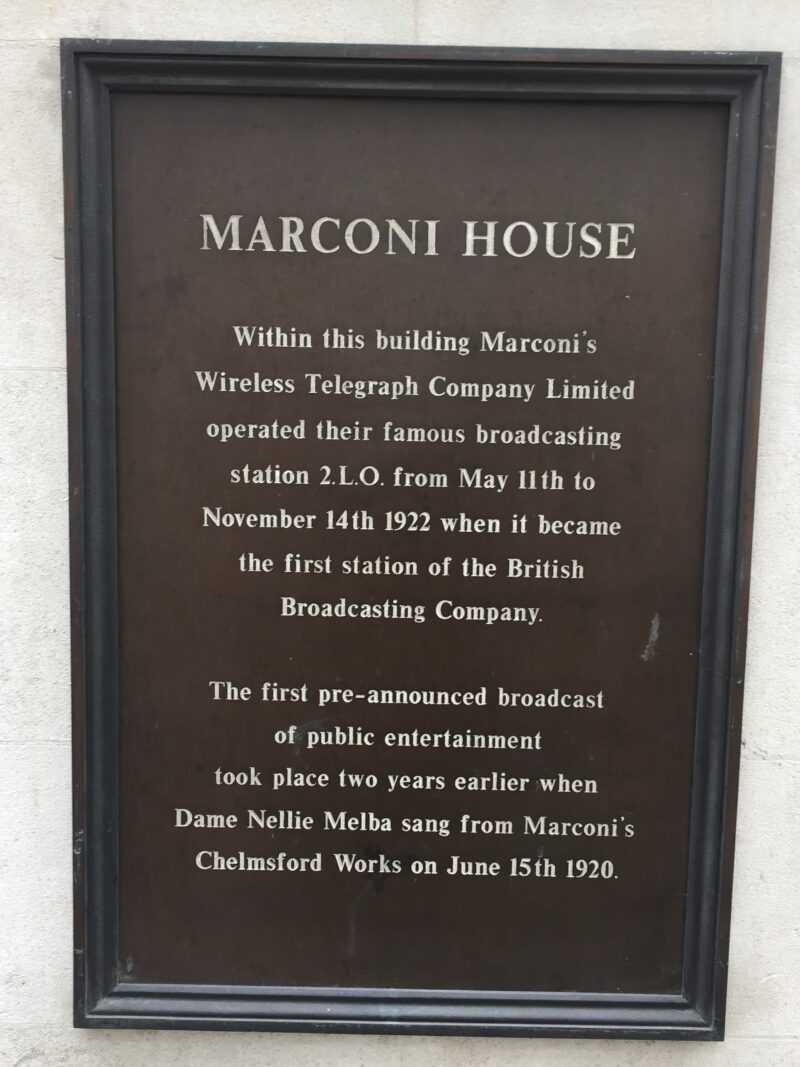It’s May 11 2022 and at some point today I’ll walk down Strand to Aldwych and stand outside a set of very exclusive apartments just next door to the ME London hotel. The Marconi Wing, with its very nice entrance, is on the site of Marconi House where, on this day in 1922, a 100W radio transmitter with the callsign 2LO started regular broadcasts on 350 metres (857 kHz)
It wasn’t the first radio station in the UK, nor even the first to broadcast a regular schedule – that was 2MT, which began on February 14 from some huts next to the Marconi laboratories at Writtle, near Chelmsford, but 2LO was special because unlike 2MT – which closed in January 1923 – 2LO became part of the new British Broadcasting Company when it was formed in November 1922 and so is a direct ancestor of everything from the Light Programme to 6Music to BBC Sounds.
It’s so important I named my internal podcast after it – and you can listen to an episode of 2LO rebooted from the 95th anniversary here on Soundcloud.
It’s so important that the remaining bits of it are in the Science Museum’s Information Age gallery as a symbol of the engineering achievements that made broadcasting the dominant medium of the 20th Century.

And it’s so important that David Hendy, in his wonderful book The BBC: A People’s History, spends a lot of time talking about the astonishing creativity of the early BBC staff who were a vital part of the generation that created the medium of radio from the raw material of ‘sound at a distance’ and infused it with the public service principles that carry the BBC forward today, people like Lance Sieveking and Olive Shapley who broke down so many barriers
https://www.waterstones.com/book/the-bbc/david-hendy/9781781255254
https://www.bbc.co.uk/creativediversity/history/oliveshapley/
https://en.wikipedia.org/wiki/Lance_Sieveking
The BBC is rather important to me, not just as a broadcaster myself on Digital Planet, but because I’ve been inside the machine for almost thirteen years, since Tony Ageh and Roly Keating offered me the chance to join the archive development team and develop partnerships between the BBC and cultural institutions that would make better use of the BBC archive than just making old TV and radio programmes available.
https://www.bbc.co.uk/programmes/p002w6r2
I still believe that watching an old programme is probably the least interesting thing you can do with it, when it’s there to be mined for data about language, production methods, fashion, buildings, cars and social attitudes. If you want to know about spectacle frames in the 1980’s where else are you going to find hundreds of thousands of examples? Or shoes? Or car colours? Or racist language in everyday use?
But I’m no longer directly involved with the archive – after six years I moved, to the Make it Digital project where we made the BBC micro:bit a reality, and for the last five years in BBC Research & Development, which has given me a space to explore the boundaries of technology and look for new ways to put the medium of the network to good use, just as the radio pioneers of the 1920’s did for the tools their technology gave them.
https://www.bbc.co.uk/rd/people/bill-thompson
And just as those creative programme makers stretched the limits of what microphones and mixing desks and studios and recording devices could do, with Olive Shapley interviewing working class people in their homes in Manchester or Sieveking dedicating all the studios in the BBC’s Savoy Place HQ to his seventy minute audio adventure Kaleidoscope, we’re pushing at the limits of what the BBC can do to deliver public value on the net, and trying to change the net to support our vision.
That’s the goal of our work on Public Service Internet, which, like 2LO, combines engineering endeavour, creative storytelling and a dedication to public service. I hope that Marconi himself, and the BBC’s first employees – Arthur Burrows, Cecil Lewis, and John Reith – would approve of what we’re doing with their inheritance
More to read and watch
You can find out about the PSI here on R&D Explains on YouTube
or a report of an event at Mozfest written up by Laura James
https://medium.com/@lbjames/building-a-healthy-public-service-internet-7f5945100c82
I’ve been thinking about this for a while – this is an article I wrote for the Register in 2002
https://billt.medium.com/damn-the-constitution-798a60cc9a41
inspired in part by the thinking I did for this pamphlet for the Co-operative Party in 2000
https://billt.medium.com/e-mutualism-or-the-tragedy-of-the-dot-commons-489bfbd965ea
and this is a bit of an explanation of why the BBC’s mission, and our commitment to diversity and equity, matters
https://billt.medium.com/the-road-from-jarrow-docks-db82f15197bf
